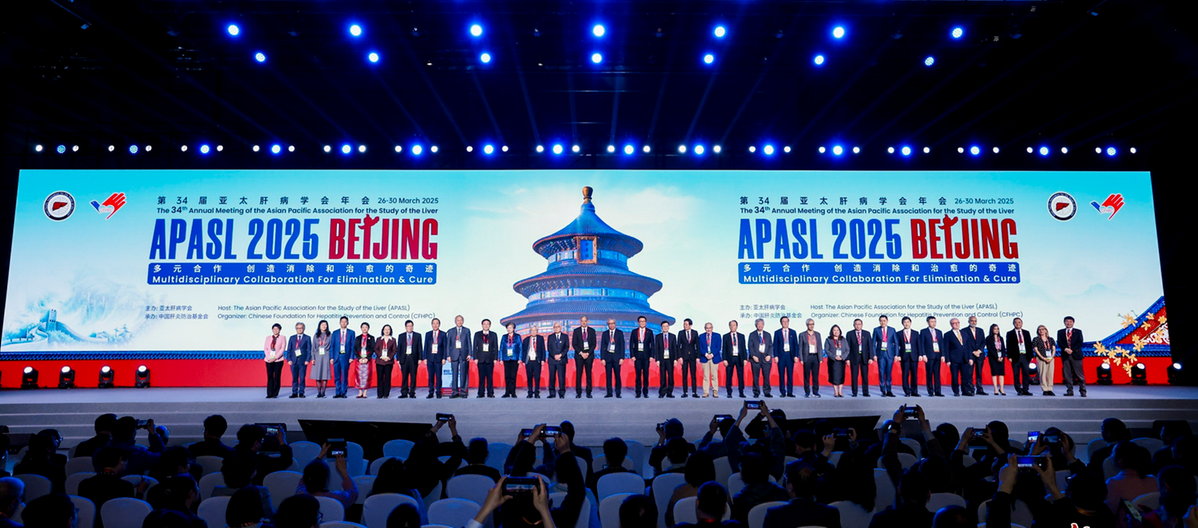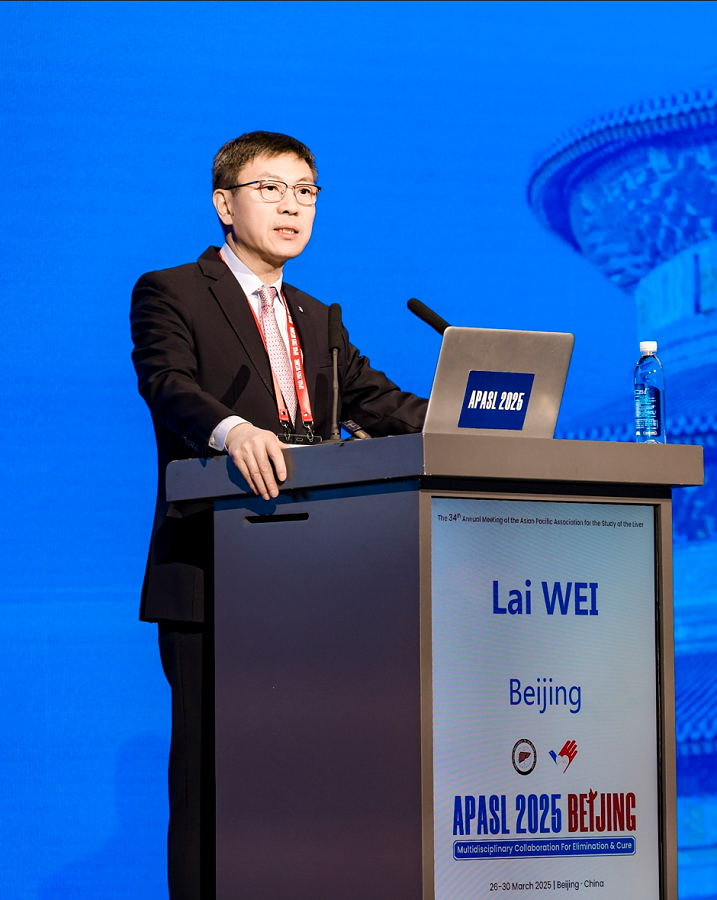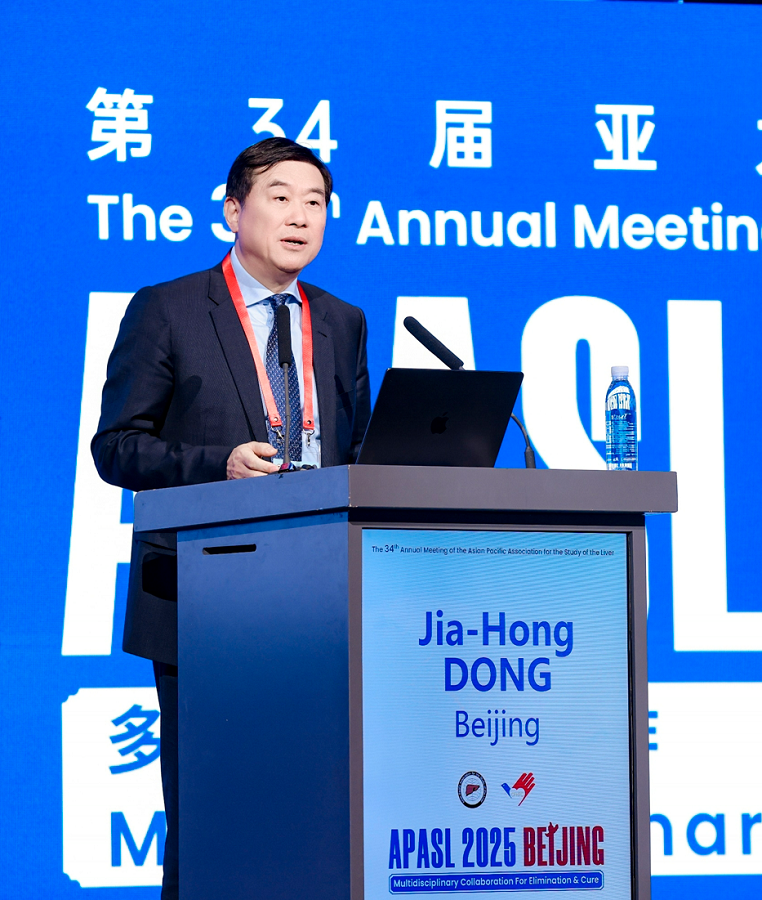
The 34th annual meeting of the Asian Pacific Association for the Study of the Liver, was held in Beijing from March 26 to 30. [Photo provided to chinadaily.com.cn]
Medical experts have emphasized the importance of multidisciplinary cooperation in the management of liver diseases and the advancement toward the goal of eliminating hepatitis B by 2030 at a recent academic conference.
Wei Lai, president of the Asian Pacific Association for the Study of the Liver and head of the hepato-pancreato-biliary center at Beijing Tsinghua Changgung Hospital, said that China has successfully reduced new hepatitis B infections — the most common viral hepatitis. In 2016, the positivity rate of hepatitis B surface antigen among the general population was estimated to be around 6.1 percent.
Despite this progress, there are still about eight million people living with chronic hepatitis B in China who are at a higher risk of developing liver cancer and require multidisciplinary treatment in the fields such as hepatology, oncology, organ transplantation, and more.

Wei Lai, president of the Asian Pacific Association for the Study of the Liver and head of the hepato-pancreato-biliary center at Beijing Tsinghua Changgung Hospital, delivers a speech at the 34th annual meeting of the Asian Pacific Association for the Study of the Liver. [Photo provided to chinadaily.com.cn]
With changing lifestyles in recent years, Wei said the increasing incidence of metabolic-associated fatty liver disease has also underscored the need for collaboration with endocrinologists, diabetes and cardiovascular specialists, as well as nephrologists.
He made these remarks during the 34th annual meeting of the Asian Pacific Association for the Study of the Liver, which was held in Beijing from March 26 to 30 and co-hosted by the association and the Chinese Foundation for Hepatitis Prevention and Control.
Themed "Multidisciplinary Collaboration for Elimination & Cure," the event attracted over 6,000 doctors, researchers, public health specialists, and participants from 54 countries and regions.

Dong Jiahong, president of Beijing Tsinghua Changgung Hospital and an academician at the Chinese Academy of Engineering, makes a speech at the 34th annual meeting of the Asian Pacific Association for the Study of the Liver. [Photo provided to chinadaily.com.cn]
Dong Jiahong, president of Beijing Tsinghua Changgung Hospital and an academician at the Chinese Academy of Engineering, said that chronic liver diseases typically require interventions throughout the full life cycle, including surgical procedures at major hospitals and rehabilitation and long-term management at grassroots clinics.
Dong said the hospital has established community healthcare service centers directly managed by the hospital and connected to its critical disease treatment center to enhance patient treatment outcomes and improve their quality of life.
Wei, the association's president, added that the meeting also featured discussions on the challenges facing the Asia-Pacific and global issues in combating viral hepatitis, as well as the latest research findings on the concept of "functional cure" for hepatitis B — reducing the viral load to undetectable levels.
The meeting also hosted forums to share Chinese experiences in preventing and treating hepatitis B, as well as initiatives aimed at enhancing understanding of metabolic-associated fatty liver diseases.
Tian Zhaosen contributed to this story.